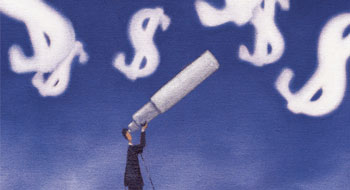
Originally from our sister publication, Advisor.ca.
The chips seem to be falling in favour of investors, with North American equity markets rebounding after a volatile 2011 and the S&P 500 reaching its highest close in almost four years last Monday.
But the Canadian equity market continues to trail its global peers despite positive returns over the first half of 2012.
Read: Investor confidence up in March
Paul Taylor, chief investment officer, BMO Harris Private Banking in Toronto, acknowledged that Canadian equities have recently trailed in the S&P 500 and that the TSX is trailing the U.S. market for the first time eight years. He blames this on the cyclical nature of Canadian equities.
However, he stresses that macro-economic pressure has lessened due to factors such as the deals made in Greece. The eurozone will manage through their issues and the U.S. economy continues to improve.
Despite that fact that the market is heading into its weak season, he predicts that both the U.S. and Canadian dollar will be higher. If market growth exceeds expectations, demand for equities will surge—and if China can avert a hard landing, growth will still remain moderate.
Taylor believes the 2012 federal budget is “investor-friendly” and that “Canada is in an enviable position compared to the U.S., since we are in spitting distance of balancing our budget.”
Read: Budget 2012: Reaching for Balance
He adds, “The budget provides a relatively decent backdrop for improvement and provides the opportunity for both growth and restraint. Canada is further ahead than anyone expected.”
He forecasts the current bias of investors will lead them to buy into non-cyclical equities, such as staples and telecoms, until they are more certain of the economic future.
While some investors may have hoped for more from the majority budget, he says most will agree “the government clearly strived for balance and didn’t want to choke growth in the short term. The market has the right balance.”
On the U.S. front, Andrew Busch, global currency and public policy strategist of BMO Capital Markets in Chicago, said the Federal Reserve is pushing the prices of securities in hopes that investors will take more risks and invest in high-yield stocks and dividend funds. It hopes to eliminate current downside risks and boost equities as a result.
In addition, banks that passed the Fed’s stress tests have been seen buying back shares and increasing dividends, which should lead to improved performance and stronger market support.
